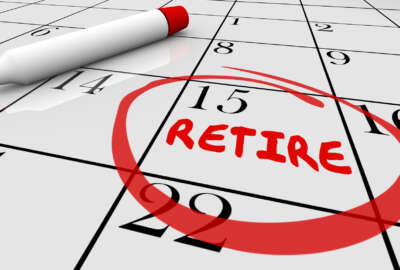Are you saving enough for retirement? Maybe the question nags at you, maybe you wish you thought about it more?
Maybe you have it all figured it out, and planning for retirement is a breeze?
Data tells us it’s a real mixed bag when it comes to how federal employees are feeling about their financial readiness ahead of retirement.
About 60% of Thrift Savings Plan participants are confident they’re saving or have saved enough to live comfortably in retirement, according to a recent Federal Retirement Thrift Investment Board survey.
That’s slightly worse than the 69% of American workers who said they were confident about their retirement savings in a 2020 survey from the Employee Benefit Research Institute.
No surprise, feds who are later in their careers or who have stopped working altogether feel more confident about where they are than their younger colleagues.
About 59% of actively working feds are comfortable with their retirement savings, compared to 76% of former feds actually living through retirement, according to the TSP.
But just under half of TSP participants, about 48%, said they have an idea how much they’ll need to live comfortably in retirement, with one-third of current retirees and 40% of late-career feds without a clear sense of what they’ll need to live on after they stop working.
According to the TSP, most feds are more likely to think about their savings in terms of a monthly income they believe they’ll need in retirement, while younger employees more often think about a total dollar amount.
The FRTIB conducted this survey last fall, after much of the stock market volatility subsided and living through the pandemic became the new normal. The agency only surveyed its participants in the Federal Employees Retirement System; military members in the blended retirement system did not answer these questions.
What’s keeping feds up at night as they think about planning and saving for retirement? Most active and retired employees are worried they simply haven’t saved enough, or they’re concerned they’ll outlive their retirement savings.
Some said they see their debt or living expenses as a top reason for worrying about their financial readiness in retirement.
TSP participants said their mortgage or rent expenses, personal debt and student loans were all top reasons why they weren’t saving as much as they would like for retirement.
Beyond the TSP and Social Security, no surprise, most feds envision their their FERS annuity and pension as a key source of income in retirement, but 48% have private savings and investments and 35% have stock holdings and retirement investments from another employer.
A clear majority, or 87% of feds, said they plan or already have sources of retirement income other than their government benefits.
When it comes to how feds plan for retirement, 33% said they’re on their own, but 33% said they attend TSP webinars or informational sessions hosted by their agencies.
Another 32% said they go to their friends or colleagues for retirement planning advice, while 27% consult a professional financial planner or adviser, according to the TSP.
And in the event of an unexpected emergency, 81% of feds said they have funds set aside to pick up all or some of the costs.
Half of TSP participants said they have enough savings to handle an unexpected one time expense of $5,000 or more, without taking out a loan, using a credit card or otherwise borrowing to pay for it.
Those with an emergency fund are twice as likely to be at least somewhat confident in their retirement savings, according to the TSP.
Here’s the good news: A majority of feds in the event of — let’s face it — another government shutdown, pandemic or some other unexpected event, have some savings set aside to at least partially handle the fallout.
But put another way, nearly one in five federal employees do not.
Overall, 55% of surveyed TSP participants said they’re satisfied with their financial wellbeing at this point in their careers. That’s better than the private sector, where 43% of U.S. workers are satisfied with their finances, according to the 2020 Global Benefits Attitudes Survey from Willis Towers Watson.
Again, late career employees and separated or retired feds are more satisfied with their finances compared to their younger colleagues.
Interestingly enough, feds are more satisfied with their overall financial wellness than they are with their confidence in planning for retirement.
Now that you have a glimpse of how your peers are feeling, how do you stack up?
Nearly Useless Factoid
By Alazar Moges
The highest the price for gasoline reached in the United States was on July 17, 2008, when the average national cost for a gallon was $4.114.
Source: AAA
Copyright
© 2024 Federal News Network. All rights reserved. This website is not intended for users located within the European Economic Area.





